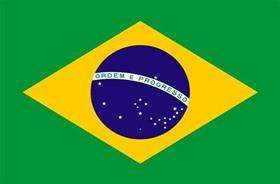
The value of Brazil’s fresh fruit exports are set to fall below 2012’s low levels due to Europe’s persistent economic woes and reduced production volumes this season, according to promotional body the Brazilian Fruit Institute (Ibraf).
“The values negotiated on the international markets are even smaller than in 2012 due to the persistence of the economic crisis,” said Ibraf technical manager Cloves Ribeiro Neto. “We also had some weather problems in producing regions which reduced production destined for export.”
In 2012, the value of fresh fruit exports fell to US$619m from US$633m the prior year, although export volumes rose to 693,000 tonnes, up from 681,000 tonnes shipped in 2011.
“The difference between the values is explained by the slower recovery of the economies of importing countries,” Neto told Fruitnet.
Brazil’s melon exports grew by 7.2 per cent in 2012; lemons by 9.5 per cent and mango by 0.5 per cent respectively compared to 2011.
In 2012, melon was the top Brazilian fruit export in volume terms with 181,767 tonnes. Mango, however, generated the most income with US$137m.
Last year the top destinations for Brazilian fresh fruits were the Netherlands, with sales accounting for more than one third of the total value and volume (respectively 42 per cent and 39 per cent), the UK (20 per cent of value and 18 per cent of volume) and Spain (10 per cent and 12 per cent). The US, Germany, Argentina, Portugal and France are in the top 10.
Brazil’s fresh fruit imports, meanwhile, fell by 7 per cent in volume, but rose 0.5 per cent in value in 2012 over the prior year.
Pears accounted for the number one imported fruit in volume and value terms, with 217,000 tonnes and US$224m, followed by apples, plums, grapes, kiwifruit and peaches, coming mainly from Argentina, followed by Chile, Spain, Portugal and Italy.
“The drop in imports in 2012 was due to good domestic production, particularly for apples and peaches,” Neto said. “The attractiveness of the domestic market, coupled with the global economic crisis meant grower-shippers diverted greater volumes away from international markets to the domestic market.”
Brazil is gearing up for FIFA World Cup in 2014 and Olympics in 2016. According to Neto, the fruit sector hopes to use the events to showcase its sustainable products.
“The fruit sector is optimistic, because the events give it a chance to show the world its products’ quality, flavour, food safety, sustainability and diversity,” he said. “Brazil can offer tropical fruit, temperate fruits and exotic fruits, and boasts a production that exceeds 45m tonnes annually.
In the meantime, Brazil’s fruit industry is working on adding value to the fruit export chain.
“Each year, the industry invests more in technology and new methods of fruit processing to be able to provide high quality products and food safety,” Neto said. “Pulps, concentrates, purees, frozen fruit, coconut water, juices and nectars are just some of the Brazilian fruit products produced to meet the global food industry which needs, increasingly, to diversify and innovate their products.”



